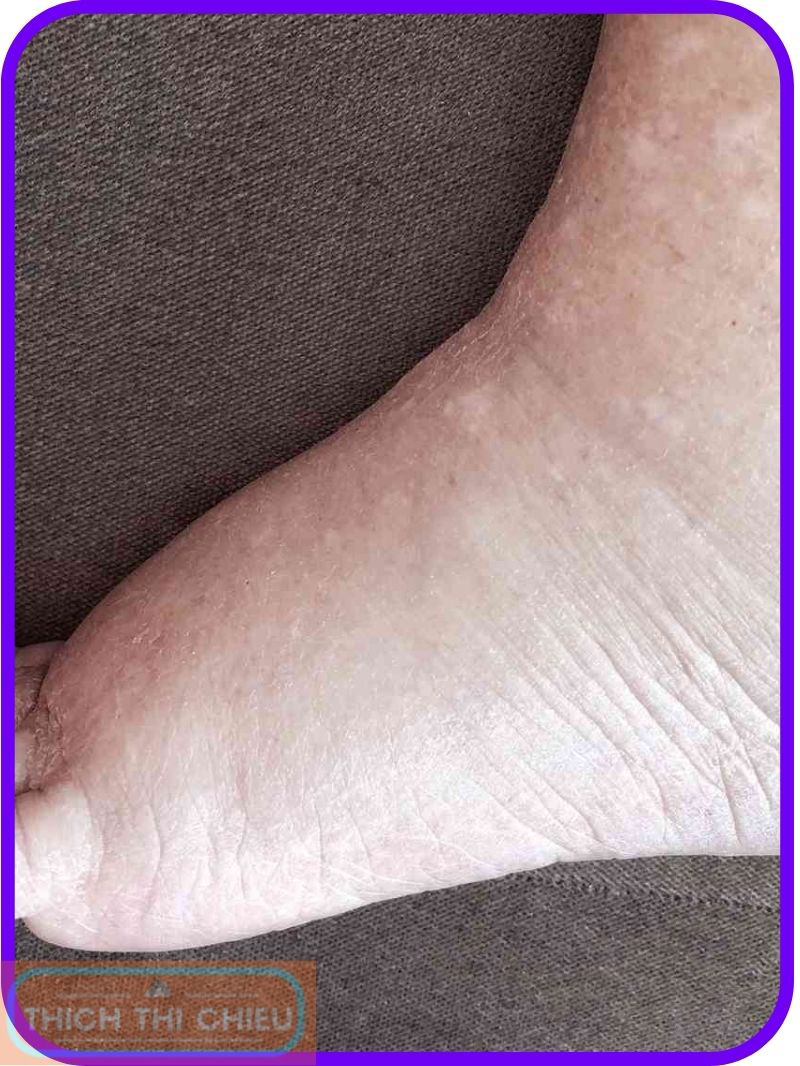Experiencing weight gain after surgery can be a disheartening experience, especially when you’ve been working hard to maintain a healthy lifestyle. While it’s normal to experience a temporary fluctuation in weight following a surgical procedure, understanding the underlying causes can help you address them effectively and prevent long-term weight gain.
In this article, we will discuss the various reasons why weight gain may occur after surgery, including fluid retention, hormonal changes, reduced physical activity, and medications. We will also provide tips on how to prevent weight gain after surgery and how to manage it if it does occur.
I hope this introduction is helpful. I encourage you to continue reading the article to learn more about this important topic.
Physiological Factors Contributing to Weight Gain
Fluid Retention

Role in Post-Surgical Weight Gain
Fluid retention is a common cause of weight gain after surgery. The trauma and inflammation caused by surgery can damage blood vessels and lymphatic vessels, leading to increased fluid leakage and accumulation.
The extent of fluid retention after surgery depends on various factors, including the type of surgery, the individual’s overall health status, and their fluid intake before and after the procedure.
Symptoms
The symptoms of edema can vary depending on the location and severity of the fluid accumulation. Common symptoms include:
- Swelling: This is the most noticeable sign of edema. The affected area may feel puffy, tight, or tense.
- Pain or discomfort: The swelling can cause pain or discomfort in the affected area.
- Skin changes: The skin may appear stretched, shiny, or pitted.
- Decreased mobility: The swelling can restrict movement, especially in the joints.
Factors Influencing Fluid Retention
Several factors can influence the development and severity of fluid retention after surgery:
- Type of surgery: Some surgeries are more likely to cause fluid retention than others. For instance, surgeries involving the abdomen, pelvis, or extremities are more likely to trigger edema.
- Individual’s health status: Individuals with pre-existing conditions such as heart disease, kidney disease, or liver disease are at an increased risk of developing fluid retention after surgery.
- Fluid intake: Excessive fluid intake before or after surgery can contribute to fluid retention.
- Medications: Certain medications, such as corticosteroids and some blood pressure medications, can increase the risk of fluid retention.
Prevention and Management of Fluid Retention
There are several steps that can be taken to prevent and manage fluid retention after surgery:
- Elevation: Elevating the affected area above the level of the heart can help to reduce swelling.
- Compression: Wearing compression garments, such as elastic stockings or sleeves, can help to reduce swelling and promote lymphatic drainage.
- Dietary modifications: Reducing salt intake and increasing fluid intake can help to reduce fluid retention.
- Diuretics: Diuretic medications can be prescribed to help the body eliminate excess fluid.
Hormonal Changes
Impact of Anesthesia on Hormonal Balance
Anesthesia, a medication used to induce unconsciousness during surgery, can temporarily alter hormonal levels. The specific hormones affected can vary depending on the type of anesthetic used and the individual’s response. However, some common hormonal changes associated with anesthesia include:
- Increased cortisol levels: Cortisol, often referred to as the stress hormone, plays a role in regulating metabolism and blood sugar levels. Anesthesia can trigger the release of cortisol, which can lead to increased appetite and fat storage, particularly in the abdominal region.
- Decreased thyroid hormone levels: Thyroid hormones, T3 and T4, regulate metabolism and energy expenditure. Anesthesia can temporarily suppress thyroid hormone production, leading to a slowdown in metabolism and potential weight gain.
- Altered insulin levels: Insulin, the hormone responsible for regulating blood sugar levels, can also be affected by anesthesia. Some anesthetics can cause an initial surge in insulin secretion, followed by a period of decreased insulin production. These fluctuations can disrupt glucose metabolism and contribute to weight gain.
Impact of Medications on Hormonal Balance
Certain medications, particularly those prescribed for pain management, can also influence hormonal balance and contribute to weight gain. Some common examples include:
- Corticosteroids: Corticosteroids, such as prednisone, are often used to reduce inflammation and pain. However, they can also lead to increased appetite, fat storage, and water retention.
- Antidepressants: Some antidepressants, such as tricyclic antidepressants and selective serotonin reuptake inhibitors (SSRIs), can increase appetite and slow metabolism, potentially leading to weight gain.
- Antihistamines: Some antihistamines, particularly those with anticholinergic properties, can cause dry mouth and constipation, which can lead to increased fluid retention and perceived weight gain.
Impact of Stress on Hormonal Balance
Stress, both physical and psychological, can significantly impact hormonal balance, particularly the production of cortisol. When the body perceives stress, it triggers the release of cortisol, which mobilizes energy resources to cope with the perceived threat. However, chronic stress can lead to elevated cortisol levels, which can contribute to increased appetite, fat storage, and weight gain.
Specific Hormones Involved in Metabolism and Weight Gain
Several hormones play a crucial role in regulating metabolism and energy balance, and their dysregulation can contribute to weight gain. Some key hormones include:
- Leptin: Leptin, produced by fat cells, signals satiety and inhibits appetite. Decreased leptin levels can lead to increased hunger and overeating.
- Ghrelin: Ghrelin, produced by the stomach, stimulates appetite. Elevated ghrelin levels can lead to increased food intake and potential weight gain.
- Insulin: Insulin, produced by the pancreas, regulates blood sugar levels. Insulin resistance, when cells become less responsive to insulin, can lead to increased fat storage and weight gain.
- Thyroid hormones: Thyroid hormones, T3 and T4, regulate metabolism and energy expenditure. Decreased thyroid hormone levels can lead to a slowdown in metabolism and potential weight gain.
Reduced Physical Activity
Influence of Mobility Restrictions on Physical Activity Levels
Mobility restrictions, which limit an individual’s ability to move freely, can significantly reduce physical activity levels. These restrictions can arise from various factors, including:
- Surgical incisions and pain: The pain and discomfort associated with surgical incisions can limit movement and deter individuals from engaging in physical activities.
- Post-operative complications: Surgical complications, such as infections, bleeding, or organ dysfunction, can further restrict mobility and physical activity levels.
- Underlying medical conditions: Pre-existing medical conditions, such as arthritis, joint pain, or neurological disorders, can contribute to mobility limitations and reduce physical activity.
- Immobility aids: The use of mobility aids, such as walkers or crutches, while necessary for support and safety, can also limit the range of motion and intensity of physical activities.
Effect of Decreased Exercise on Calorie Expenditure
Calorie expenditure is the amount of energy used by the body to perform various activities, including physical movement, digestion, and maintaining basic bodily functions. When physical activity levels decrease, calorie expenditure also decreases, leading to an imbalance between calories consumed and calories burned.
Regular exercise, such as brisk walking, running, or swimming, burns a significant number of calories, contributing to weight management and overall health. However, when physical activity is reduced, the body burns fewer calories, and the excess calories are stored as fat, leading to weight gain.
Impact on Weight Gain
Reduced physical activity, often combined with other factors such as increased appetite and hormonal changes, can lead to significant weight gain. Studies have shown that even modest reductions in physical activity can result in weight gain over time.
For instance, one study found that adults who reduced their physical activity by just 2,000 steps per day gained an average of 1.5 pounds over a 12-month period. Another study observed that individuals who were hospitalized for an extended period experienced an average weight gain of 10 pounds due to reduced mobility and physical activity.
Additional Factors Contributing to Weight Gain
Medications
Side Effects of Pain Management and Other Post-Operative Medications
In addition to the physiological factors discussed earlier, certain medications commonly prescribed for pain management and other post-operative care can have side effects that promote weight gain. These medications can influence appetite, metabolism, and hormone levels, contributing to increased fat storage.
Examples of Medications that May Promote Weight Gain
- Corticosteroids: Corticosteroids, such as prednisone, are potent anti-inflammatory medications often used to reduce pain and swelling. However, they can also lead to increased appetite, fat storage, particularly in the abdomen, and fluid retention.
- Antidepressants: Some antidepressants, particularly tricyclic antidepressants and selective serotonin reuptake inhibitors (SSRIs), can increase appetite, slow metabolism, and alter fat distribution, potentially leading to weight gain.
- Antihistamines: Some antihistamines, particularly those with anticholinergic properties, can cause dry mouth, constipation, and increased appetite, which can contribute to weight gain.
Dietary Changes
Alterations in Appetite, Food Choices, and Mealtimes Due to Surgery
Surgery can significantly impact an individual’s appetite, food choices, and mealtimes, leading to alterations in dietary patterns and potential weight gain. Several factors contribute to these dietary changes:
- Pain and discomfort: The pain and discomfort associated with surgical incisions and recovery can make it difficult to prepare and consume meals, leading to a decreased intake of nutritious foods.
- Nausea and vomiting: Nausea and vomiting, common side effects of anesthesia and certain medications, can reduce food intake and prevent proper nutrient absorption.
- Altered taste perception: Anesthesia and medications can temporarily alter taste perception, making it difficult to enjoy healthy foods and leading to cravings for less nutritious options.
- Stress and anxiety: The stress and anxiety associated with surgery and recovery can influence appetite and food choices. Emotional eating, a coping mechanism for stress, can lead to overconsumption of unhealthy foods.
Impact of Nausea and Vomiting on Food Intake and Nutrient Absorption
Nausea and vomiting, common post-operative complications, can significantly impact food intake and nutrient absorption. Nausea can suppress appetite, making it difficult to consume adequate amounts of food. Vomiting, on the other hand, expels ingested food, preventing proper nutrient absorption and contributing to nutritional deficiencies.
Psychological Factors
Emotional Eating as a Coping Mechanism for Stress and Anxiety
Surgery can be a stressful and anxiety-provoking experience, and emotional eating is a common coping mechanism for dealing with these emotions. Emotional eating involves consuming food in response to emotions, rather than physical hunger. This can lead to overconsumption of unhealthy foods and potential weight gain.
Role of Boredom, Isolation, and Depression in Weight Gain
Boredom, isolation, and depression, which can arise during the post-operative recovery period, can also contribute to weight gain. Boredom can lead to increased snacking out of habit, while isolation and depression can further exacerbate emotional eating patterns.
Preventing Weight Gain After Surgery: A Proactive Approach
Undergoing surgery can be a significant life event, and the recovery period often involves various challenges, including managing pain, discomfort, and mobility limitations. While these factors are understandable, they can also increase the risk of weight gain after surgery. Fortunately, implementing proactive measures can help prevent weight gain and promote a healthy recovery.
Communicate with Your Healthcare Provider
Open and consistent communication with your healthcare providers is crucial for managing weight gain after surgery. They can provide personalized guidance and support based on your specific needs and circumstances.
Importance of Discussing Weight Gain Concerns
Discuss your concerns about weight gain with your doctor or surgeon. They can assess your risk factors, identify potential contributing factors, and develop a tailored plan to address weight management.
Role of Doctors and Surgeons in Providing Guidance and Support
Your healthcare providers can offer valuable guidance on diet, exercise, and lifestyle modifications to prevent weight gain. They can also provide support and encouragement throughout your recovery journey.
Maintain a Balanced Diet
Prioritizing a balanced and nutritious diet is essential for maintaining a healthy weight during recovery. Focus on consuming nutrient-dense foods that provide essential vitamins, minerals, and fiber.
Prioritizing Nutrient-Dense Foods
Choose whole grains, fruits, vegetables, lean proteins, and healthy fats. These foods provide sustained energy, promote satiety, and support overall health.
Limiting Processed Options
Minimize consumption of processed foods, sugary drinks, and excessive amounts of saturated and unhealthy fats. These foods are often high in calories and low in nutrients, contributing to weight gain.
Importance of Balanced Macronutrient Intake
Ensure a balanced intake of macronutrients, including carbohydrates, proteins, and fats. Each macronutrient plays a role in weight management and overall health.
Engage in Physical Activity
As your recovery progresses, gradually reintroduce physical activity into your routine. Exercise helps burn calories, build muscle mass, and boost metabolism, all of which contribute to weight management.
Gradual Introduction of Exercise
Start with gentle exercises like walking or stretching and gradually increase the intensity and duration of your workouts as your strength and endurance improve.
Starting with Gentle Exercises and Progressing to More Challenging Activities
Listen to your body and avoid overexertion. Choose activities that you enjoy and that fit your current fitness level and recovery limitations.
Address Emotional Eating
Emotional eating, using food to cope with stress or emotions, can lead to unhealthy weight gain. Recognize emotional eating triggers and develop alternative coping strategies.
Recognizing Emotional Eating Triggers
Identify situations or emotions that trigger emotional eating, such as stress, anxiety, or boredom.
Finding Alternative Coping Strategies
Practice relaxation techniques, such as deep breathing or meditation, to manage stress and anxiety. Engage in enjoyable activities that promote emotional well-being.
Seek Support
Surrounding yourself with supportive individuals can significantly impact your weight management journey.
Encouragement from Supportive Individuals
Seek encouragement and motivation from family, friends, or support groups. Their positive influence can boost your motivation and adherence to healthy habits.
Value of Joining Support Groups or Connecting with Others
Join support groups or connect with individuals who have undergone similar surgical procedures. Sharing experiences and strategies can provide valuable insights and support.
Weight gain after surgery is a common occurrence, often resulting from fluid retention, hormonal changes, reduced physical activity, medications, dietary changes, and psychological factors. Understanding the underlying causes is crucial for developing effective preventive measures and managing weight gain during the recovery period. Hopefully, the above article of TTC has provided you with useful information. If you have any questions or concerns, please leave a comment below.







Leave a Reply